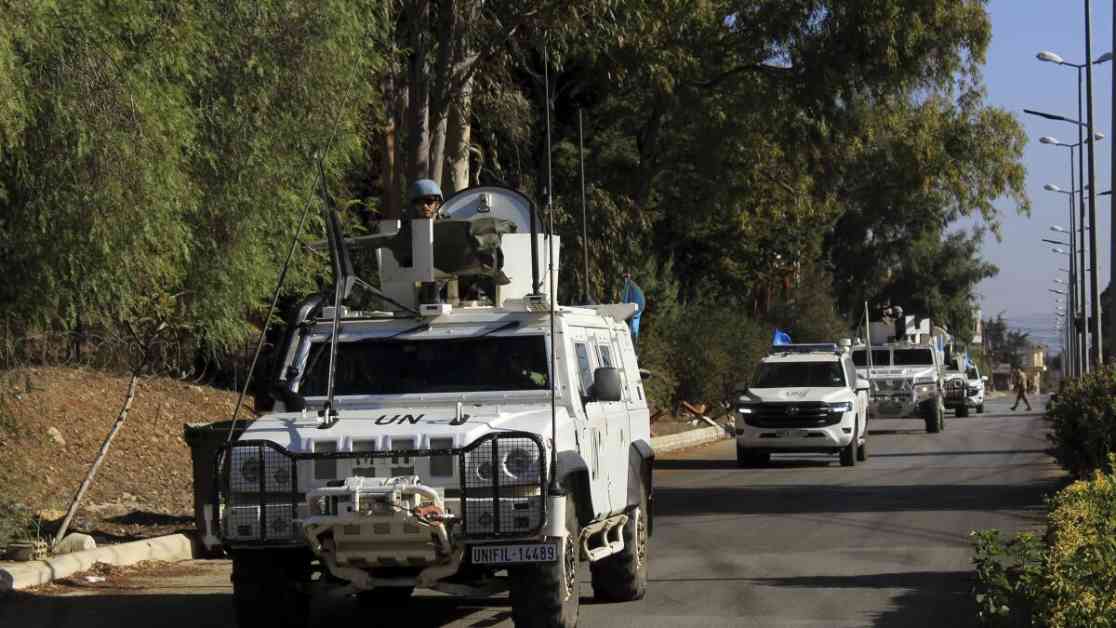The conflict between Israel and the United Nations has a long history of tension that has escalated in recent days. The animosity between the two has been growing since the creation of Israel 76 years ago. The recent incidents involving U.N. peacekeeping forces in Lebanon have added fuel to the fire.
Israel has been targeting Hezbollah militants in southern Lebanon, leading to injuries among U.N. peacekeepers. The Biden administration has condemned these actions, while Israeli Prime Minister Benjamin Netanyahu has shown no remorse, suggesting that peacekeepers evacuate the region. This dispute comes in the midst of other conflicts Israel is currently facing.
In addition to clashes with Hezbollah, Israel recently experienced a deadly attack on its soldiers by a Hezbollah drone. The Pentagon has announced plans to send Israel an advanced air defense system to protect against further attacks. The situation in Gaza has also escalated, with Israeli shelling causing casualties among Palestinians.
The U.N. refugee agency, UNRWA, has become a point of contention between Israel and the international organization. Israel has accused some UNRWA employees of being involved in attacks on Israel, leading to tensions between the two parties. The relationship between Israel and the U.N. has been strained for many years, with Israel feeling increasingly isolated in the international community.
The conflict with UNIFIL, the U.N. peacekeeping force in Lebanon, has also intensified. UNIFIL troops have been caught in the crossfire between Israel and Hezbollah, making their mission increasingly difficult. The situation in southern Lebanon has become more volatile, with patrols suspended and troops on high alert.
As tensions continue to rise, the international community is closely watching the situation in the Middle East. The ongoing conflicts in the region are a cause for concern, with no clear resolution in sight. The role of the U.N. in mediating these conflicts remains crucial, but the challenges are significant.
The recent incidents in Lebanon and Gaza highlight the complex and volatile nature of the conflicts in the Middle East. The involvement of multiple parties, including Israel, Hezbollah, and the U.N., has created a tense and unpredictable situation. As the situation continues to evolve, the need for a peaceful resolution becomes increasingly urgent.



























